BY J.J. MESSNER It certainly felt like a tumultuous year in 2017. As the wars in Syria and Yemen ratcheted up in intensity, Qatar was suddenly politically, economically and physically isolated from its neighbors, Catalonia moved forward on its attempts to separate from Spain, Venezuela fell further into chaos, the United Kingdom continued to struggle […]
Author Archives: fundforpeace
Fragile States Index 2018: Issues of Fragility Touch the World’s Richest and Most Developed Countries in 2018
- Thursday, 19 April 2018 05:15
- 0 Comments
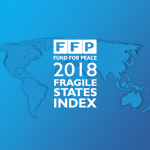
Fragile States Index 2017: Factionalization and Group Grievance Fuel Rise in Instability
- Sunday, 14 May 2017 19:54
- 0 Comments
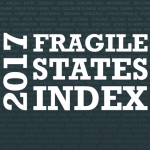
BY J.J. MESSNER
Though South Sudan has returned to top position on the annual Fragile States Index (FSI) for 2017, and Finland continues to maintain its position as the world’s least fragile country, the global tumult of the past year has been borne out in the Index’s trend analysis, as Ethiopia, Mexico, and Turkey recorded the greatest worsening over 2016. A number of developed countries also recorded notable worsening scores across certain indicators, in particular the United States and the United Kingdom, which both experienced highly divisive political campaigns during 2016. The long-term trends of the FSI have also raised red flags on a number of countries – in particular South Africa and Senegal – for which the conditions that could precipitate instability have worsened significantly.
The FSI, now in its thirteenth year, is an assessment of 178 countries based on twelve social, economic, and political indicators that quantifies pressures experienced by countries, and thus their susceptibility to instability. The FSI itself is based on the CAST conflict assessment framework, a methodology developed a quarter of a century ago that continues to be implemented widely by policymakers, field practitioners, and local communities in better understanding the drivers of conflict. The FSI, adapted from the CAST framework, is assessed through a process that triangulates content analysis of over 50 million data points, with quantitative data sets and qualitative research validation.
“So Far From God, So Close to the United States.” Mexico Most Worsened in 2017
- Sunday, 14 May 2017 19:49
- 0 Comments
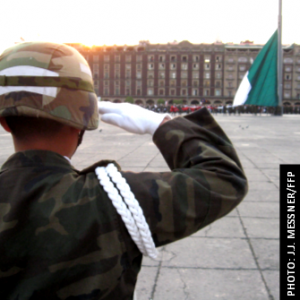
BY GEORGE LEHNER
It has been a tough year for Mexico. As Mexico has borne the brunt of combative political rhetoric from north of the border, the country has also weathered economic and political challenges, as well as an uptick of violence. The first weeks of 2017 saw widespread protests throughout Mexico, a sign that the problems that have plagued this country for last several years are continuing, a manifestation of the pressures that saw Mexico tied as the equal most worsened country on the 2017 Fragile States Index (FSI).
In 10 of the 12 FSI indicators, Mexico showed a decline, moving it’s total score by 3.9 points, a significant change over the prior year. Most notably, Mexico worsened in the Security Apparatus, Economic Decline, Refugees & IDP’s, and Group Grievance indicators. Though the economy continued to grow slightly, the overall economic outlook in Mexico, and its ability to sustain meaningful economic progress, was clouded by doubt. This was largely due to fluctuating oil prices and the uncertainty of the impact of the U.S. election on U.S.-Mexican relations.
Golden Era of Growth Fails to Mask Deeper Grievances in Ethiopia
- Sunday, 14 May 2017 19:41
- 0 Comments
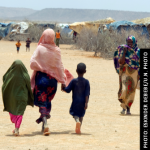
BY HANNAH BLYTH
Since the end of an almost two-decades long civil war that began in 1991, the Ethiopian People’s Revolutionary Democratic Front (EPRDF) has provided relative political stability and enabled strong economic development. Though an inter-state conflict with Eritrea over disputed territory flared in 1998-2000, since the ceasefire was declared between the two countries in December 2000, Ethiopia has been on a path of strong fiscal growth and has become an increasingly respected player within the international community. Ethiopia’s Gross Domestic Product (GDP) has risen from US$8.2 billion in 2000, to an impressive US$61.5 billion in 2015 – coinciding with major injections of foreign capital from development partners. Looking past these golden dollar sign headlines, however, there are signals that deep social and political fissures have the potential to set the country back on a path to conflict.
From Attempted Coup to Attempted Autocracy: A Year of Instability in Turkey
- Sunday, 14 May 2017 19:34
- 0 Comments
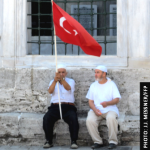
BY AMANDA QUINN
Bordered by eight countries and situated between Europe and Asia, Turkey has been affected by geopolitical forces on multiple fronts. In recent years, a combination of internal and external pressures has pushed the country into challenging times, especially throughout 2016. Turkey’s overall score on the 2017 Fragile States Index worsened by 3.5 points from its score on the 2016 Index, its most drastic change since 2012, and also making Turkey the third-most worsened country on the FSI over the past year, behind only Ethiopia and Mexico. Between an attempted military coup, multiple major terrorist attacks, continued spillover from the crisis in Syria, and an increasingly authoritarian government, it is impossible to pinpoint a single driver of Turkey’s growing instability.